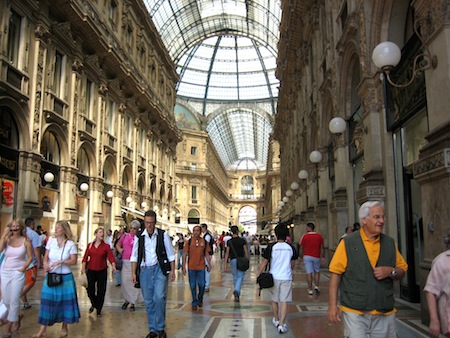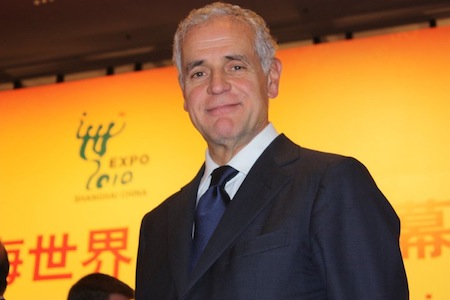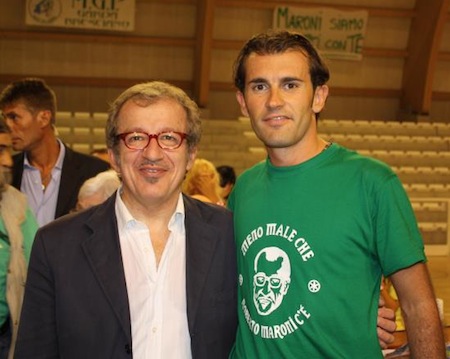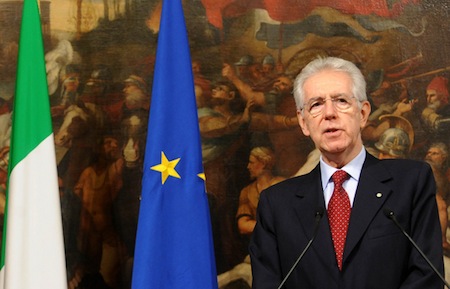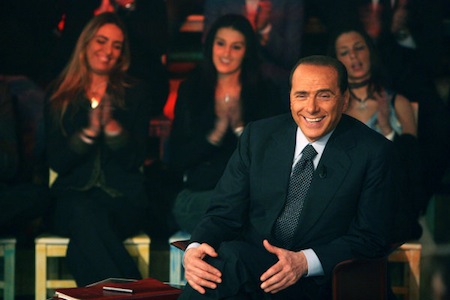Although Italy will hold national elections on February 24 and 25, three regions will hold elections as well — Lombardy, Lazio and Molise.
![]()
![]()
None of those will be more important than those in Lombardy (or Lombardia in Italian), the most populous region of Italy and, as home to Milan, Italy’s financial and fashion capital, also its wealthiest region.
Since the fall of the so-called ‘first republic’ with the implosion of Italy’s Christian Democratic party in the early 1990s, the centrodestra (the center-right) has dominated regional politics in Lombardy and, since 1995, Roberto Formigoni has served as Lombardy’s regional president, consistently winning outsized victories against the centrosinistra (the center-left) in 2000, 2005 and most recently, 2010.
Formigoni (pictured below), however, is not running for reelection — he announced the resignation of the regional legislature in October 2012 after his colleague, Domenico Zambetti, was arrested for purchasing votes from the ‘Ndrangheta — the local organized crime operation of Calabria — during the 2010 elections.
As such, ending corruption in the region’s government has taken center-stage in one of Europe’s wealthiest regions.
Realistically, that means that the centrosinistra has its first real shot at winning regional power in Lombardy, though the centrodestra‘s strength is such that, despite its scandal-plagued woes, it remains very much capable of winning yet another term in power.
It would be nearly the equivalent of the Democrats in the United States taking control of the government of the state of Texas — a political earthquake, even more of a surprise for the left than in the regional elections in Sicily in October 2012, when Rosario Crocetta became not only the island region’s first leftist president, but also its first openly gay president.
Voters will choose the regional president in a direct vote — the winner and the runner-up, as leader of the opposition, are guaranteed a seat in the 80-member Consiglio Regionale della Lombardia (Regional Council of Lombardy). The remaining 78 members of the Regional Council are selected pursuant to a proportional representation system, tied both to the presidential vote and to a separate party-list vote.
Polls show both the direct presidential vote and the vote for the Regional Council are incredibly tight.
Roberto Maroni, who became the national leader of the Lega Nord (LN, Northern League) in July 2012 after the resignation of longtime leader Umberto Bossi, is running as the candidate of the centrodestra — the Lega Nord‘s local branch in Lombardy is the Lega Lombardia (LL, Lombardy League), and it has been the longtime ally in Lombardy of the conservative Popolo della Libertà (PdL, People of Freedom) of Silvio Berlusconi.
Maroni (pictured below) has pledged to step down as the leader of the Lega Nord after the regional elections in February, regardless of whether he becomes the next regional president, apparently ending what’s been a long and fairly successful career in national politics. Most recently, in Berlusconi’s previous government from 2006 to 2008, Maroni served as minister of the interior.
A victory for Maroni would not only showcase the strength of the centrodestra‘s hold on Lombardy, but would be a huge boost for the Lega Nord, which has advocated more autonomy for the relatively wealthier northeast and center-north of Italy — and, at times, even its complete secession from Italy.
The candidate of the centrosinistra, Umberto Ambrosoli, is the son of Giorgio Ambrosoli, an attorney murdered in 1979 as a result of his investigation into the irregularities of a the Mafia-connected banker, Michele Sindona.
Polls show each candidate winning between 35% and 40% of the vote, often trading leads. Continue reading Lombardy looks to post-Formigoni era in toss-up regional elections
